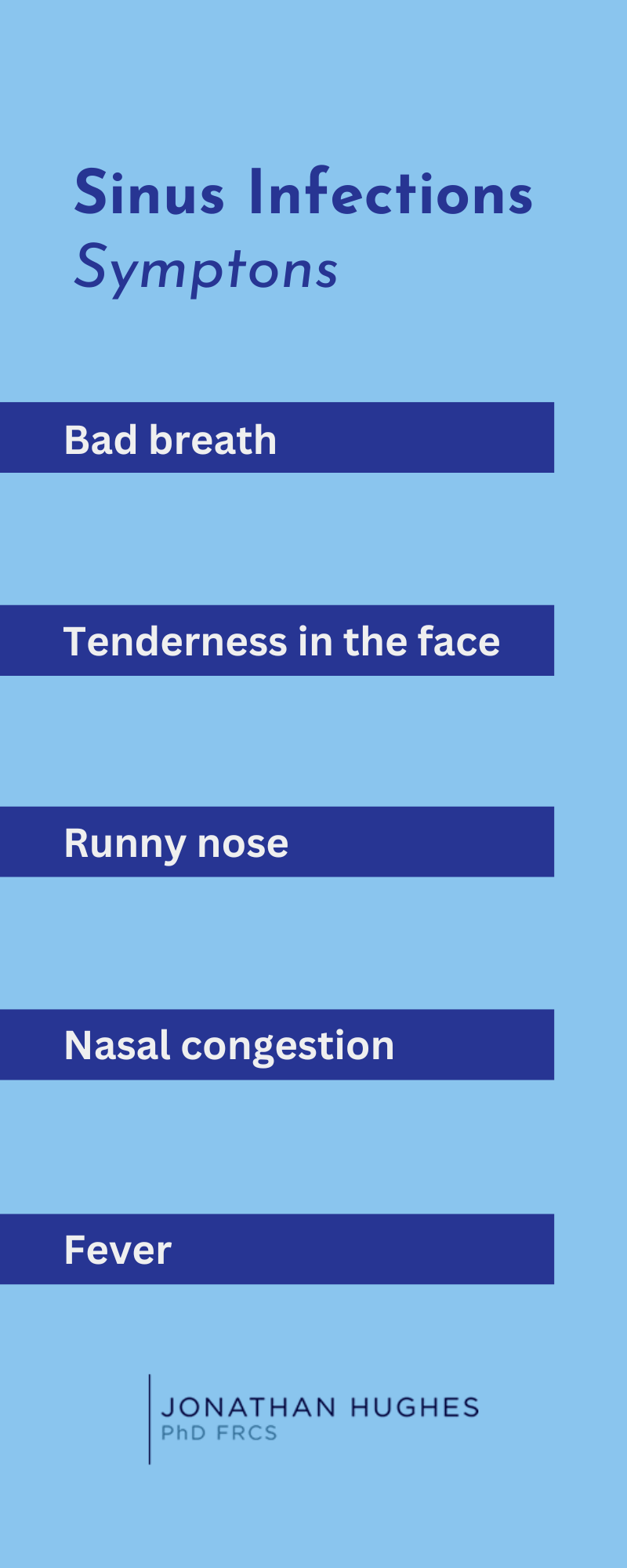We all need a good night’s sleep – eight hours interrupted if we can get it. But with colds, illness and concerns like sinus infections, breathing troubles and snoring can have an impact on your rest. Today, our ENT experts will talk through the many ways a sinus infection can affect your sleep – and what you can do about it.
The sinuses explained
First, let’s get to grips with what the sinuses are, where they can be found and what they’re needed for. Medically, your sinuses are ‘’small, air-filled cavities behind your cheekbones and forehead’’. This helps drain all the mucus your body makes – the sticky stuff that prevents pollutants, germs, dust, pollen and more from getting into your lungs. If the linings of the sinuses become swollen, they can become blocked, which means stuffiness and congestion.
All about sinus infections
If your sinuses become infected, you’ll likely see discoloured discharge coming from your nose (typically green or yellow), may experience pain or headache in the face, eyes or head, and can even suffer from a fever. In some cases, other symptoms can occur – like bad breath, toothache, blocked nose, and problems smelling. While it can – and does – clear up on its own, some people repeatedly suffer from bouts of sinusitis (sinus infection) or symptoms may worsen over time.
Sinusitis and sleep
Because of all that stuffiness and congestion in your sinuses, you’ll likely have a hard time breathing at night when you’re lying down. And, you might also be suffering from other sinusitis symptoms, like aches and pains. A sinus infection could also make problems like snoring worse – for you and your partner if you have one. In many cases, treatment is your best option for recovery.
Treatment for sinus infection
To get treatment, you’ll first need to be properly diagnosed, as some symptoms cross over with other conditions. Once it’s determined you have sinusitis, you could try painkillers, de
congestants and saline solution to help with drainage. Some of these medicines may need to be prescribed. If the condition doesn’t improve, you can have sinus surgery to improve drainage.
Sinus infection causes
While a cold or virus is often responsible, there can be other causes, from allergies and immunity problems to polyps (growths) and even lifestyle factors like smoking. When it comes to ENT concerns, we would always recommend quitting smoking.
Sinus treatment with Jon Hughes
Our London specialist can help with any nasal or throat concerns. Get in touch with our team here in London to find out more.

